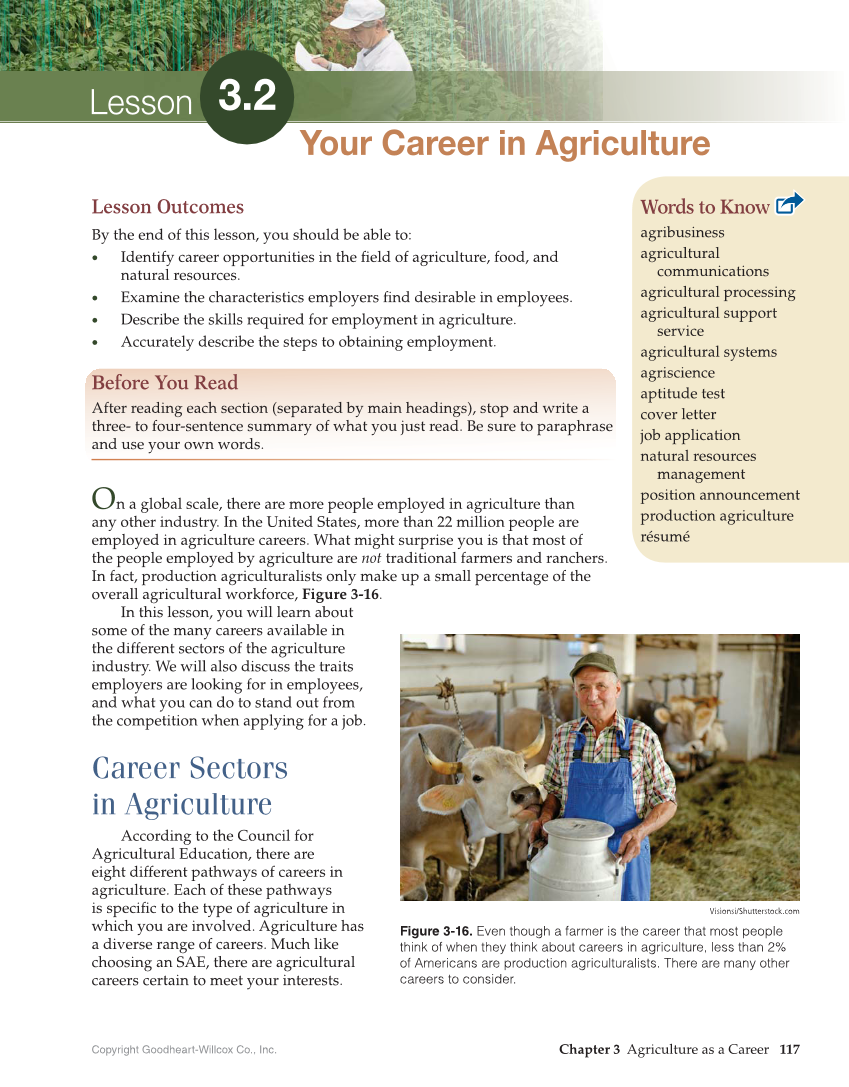Chapter 3 Agriculture as a Career 117 Copyright Goodheart-Willcox Co., Inc. Words to Know agribusiness agricultural communications agricultural processing agricultural support service agricultural systems agriscience aptitude test cover letter job application natural resources management position announcement production agriculture résumé Lesson Outcomes By the end of this lesson, you should be able to: „ Identify career opportunities in the field of agriculture, food, and natural resources. „ Examine the characteristics employers find desirable in employees. „ Describe the skills required for employment in agriculture. „ Accurately describe the steps to obtaining employment. Before You Read After reading each section (separated by main headings), stop and write a three- to four-sentence summary of what you just read. Be sure to paraphrase and use your own words. On a global scale, there are more people employed in agriculture than any other industry. In the United States, more than 22 million people are employed in agriculture careers. What might surprise you is that most of the people employed by agriculture are not traditional farmers and ranchers. In fact, production agriculturalists only make up a small percentage of the overall agricultural workforce, Figure 3-16. In this lesson, you will learn about some of the many careers available in the different sectors of the agriculture industry. We will also discuss the traits employers are looking for in employees, and what you can do to stand out from the competition when applying for a job. Career Sectors in Agriculture According to the Council for Agricultural Education, there are eight different pathways of careers in agriculture. Each of these pathways is specific to the type of agriculture in which you are involved. Agriculture has a diverse range of careers. Much like choosing an SAE, there are agricultural careers certain to meet your interests. Your Career in Agriculture Lesson 3.2 Visionsi/Shutterstock.com Figure 3-16. Even though a farmer is the career that most people think of when they think about careers in agriculture, less than 2% of Americans are production agriculturalists. There are many other careers to consider.
